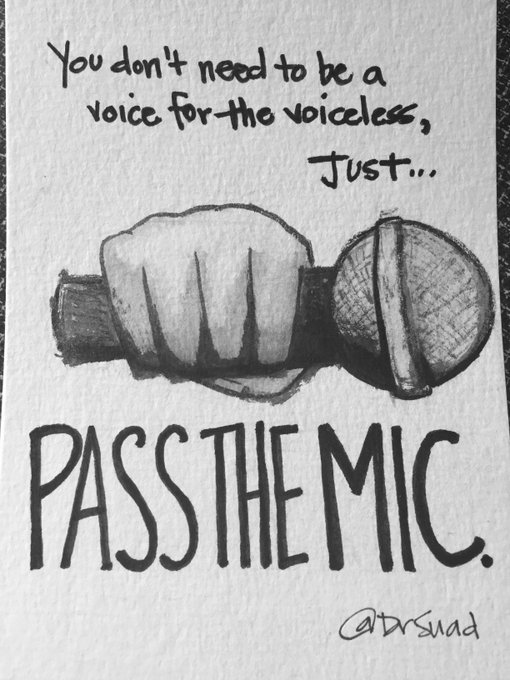For us white and privileged folks:
Let’s say you’re asked to speak on a panel, at a conference in our social good sector. It’s going to be a great professional opportunity for you, completely aligned with everything you’ve been working towards the past few years. You’ll get some recognition and kudos from it, and some positive attention for your program or organization.
Is it an automatic “yes”? Should it be?

I say no. Now is the time to resist manels [all-male panels], and in international development and philanthropy, wwanels [my new term for white women-dominated panels] as well. In fact, the invitations offer us an important opportunity to engage in dialogues about representation and leadership in the sector overall.
There’s two words to guide us in this decision-making process: integrity and grace. We can start by asking three questions of ourselves as we consider the invitation:
- Would I be taking a place that another person with an important, under-represented perspective could utilize to share their point of view?
- Will other opportunities likely come my way if I say no to this one?
- What is more important for me – advancing my career or living my values and potentially encouraging others to live theirs?
We can also ask two questions of those who are doing the inviting:
- What are the profiles of the other speakers/panelists? (So that I can know if the representation dialogue is one in which I must engage, or if they’re already thinking about it.)
- Why do they think I’m the “right” person to speak on said topic?
Each one of us must balance our personal and professional goals with what is best for the greater collective good. I engage in this dialogue with myself and with those who invite me, because as a white woman I see handing over the microphone as a divine duty. I am always ready to share or source names of women of color who would also be great to consider. (There are always others to consider.) And as all this is an evolution, I try to be ready to push myself a bit further out of my comfort zone in these dialogues each time.
This is the the thing for us white women (and men) to consider, ultimately:
Racial justice looks like and feels like us losing things, namely control, power, and opportunities like speaking invitations.
For folks who have worked hard or young people in the start of their careers, I imagine this advice can feel disappointing and “unfair.” And it’s ok. It’s uncomfortable, even painful at times. And it’s ok.
Because it is the right thing to do.
It is one way we can help usher more equity into the world – first within ourselves, then followed by our choices.
***
Related Posts
This is what it feels like (Part 1)
My conflicted relationship to “expertise”
The ego (’cause we all have one)
The only way to fight racism in our sector
Wrestling with my white fragility
De-colonising development is both personal and political
What advice would you give to new global development students?

And you live your values like no other. I know that you give my name out.